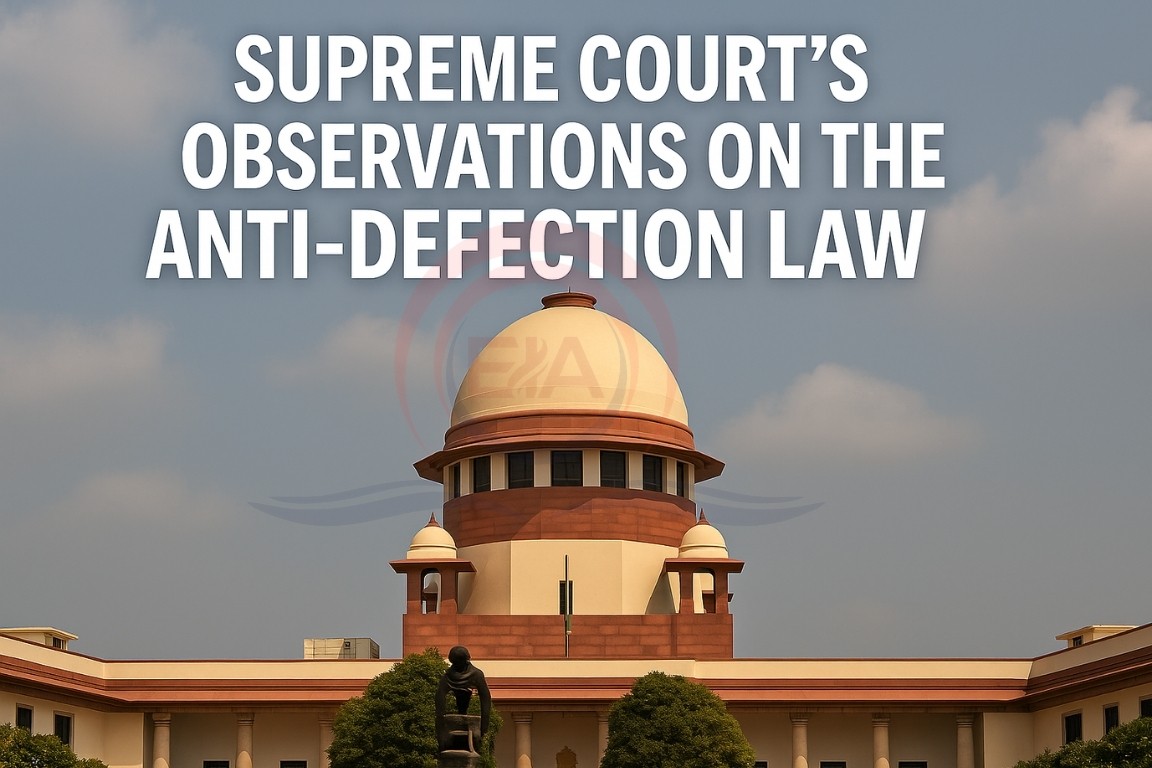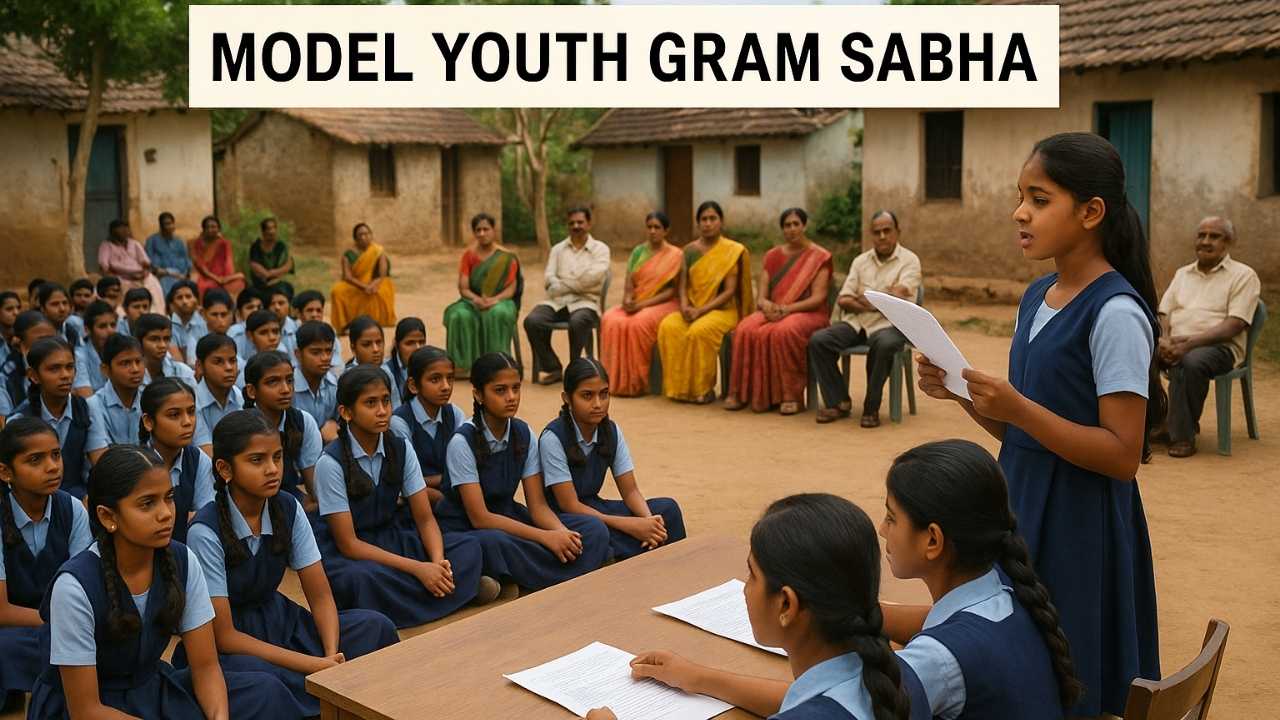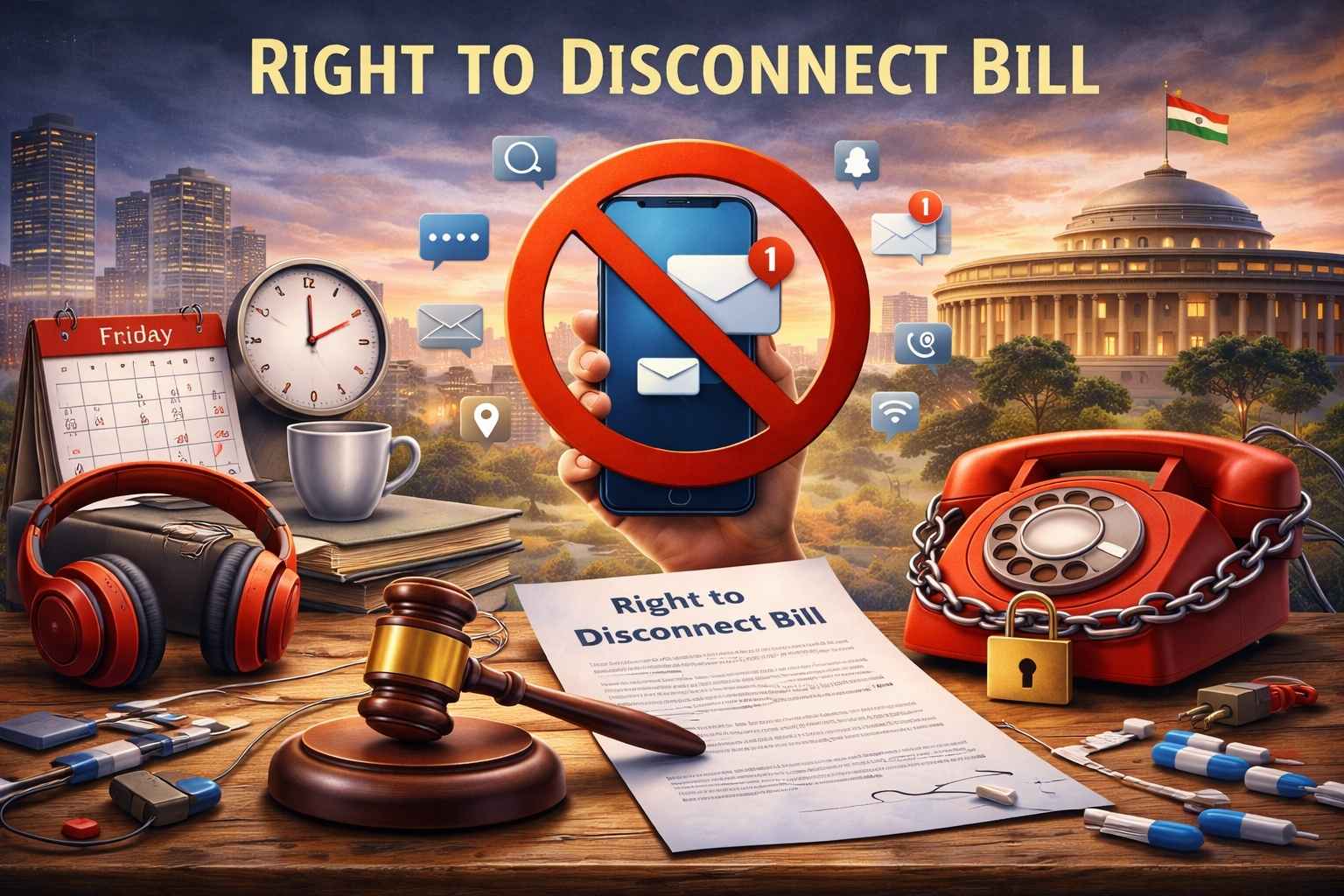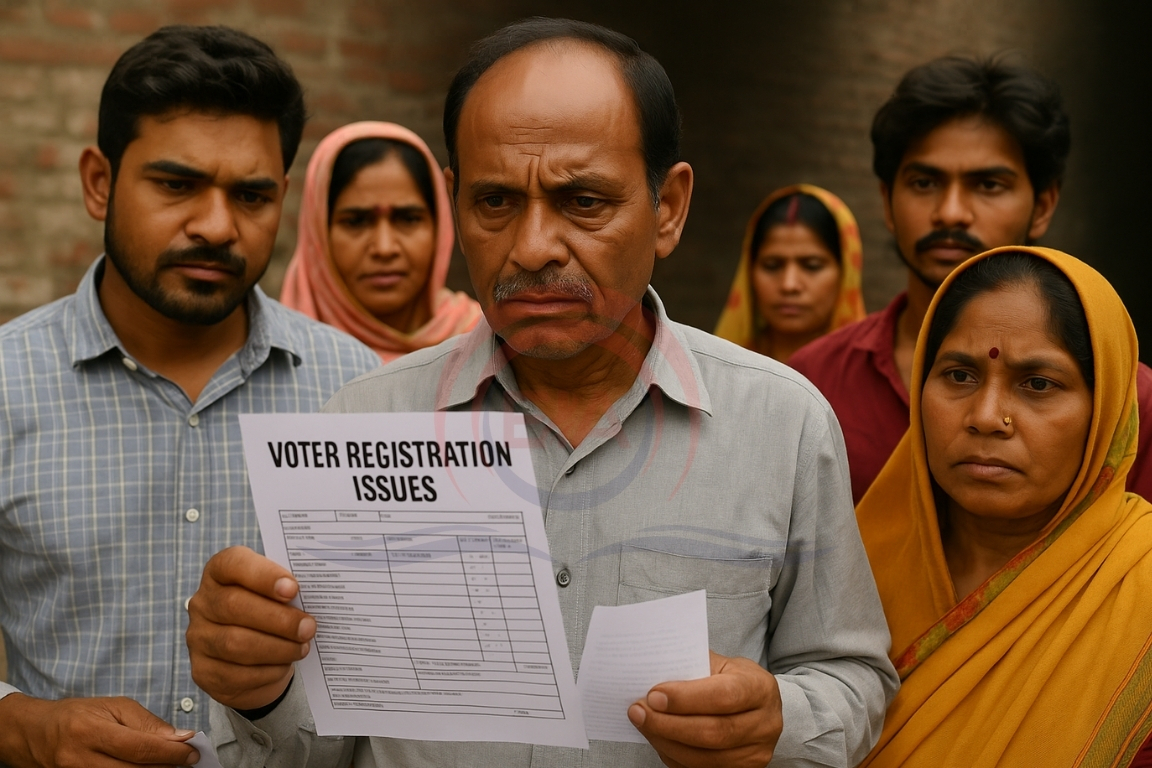The Supreme Court has urged Parliament to review the role of Assembly Speakers and Chairmen in deciding disqualification cases under the Anti-Defection Law, citing delays and possible bias, and directed the Telangana Speaker to resolve pending petitions against 10 BRS MLAs who defected to the Congress in 2024.
Background
- Phrase origin: “Aaya Ram Gaya Ram” became famous in 1967 when a Haryana MLA changed parties thrice in one day.
- Law introduction: The Tenth Schedule was added through the 52nd Constitutional Amendment Act, 1985 to control political defections.
Grounds for Disqualification
- A legislator from a political party can be disqualified if they:
- Voluntarily give up party membership.
- Vote or abstain from voting against the party’s direction without permission.
- Exemptions:
- Prior party permission.
- Party condonation within 15 days of the act.
- Independent members: Disqualified if they join a political party after election.
- Nominated members: Disqualified if they join a political party after six months of nomination.
- Decision-making authority: Speaker/Chairman of the House.
Exceptions
- Original law had:
- Split by one-third members (removed in 2003 to strengthen law).
- Merger approved by at least two-thirds members of the legislature party.
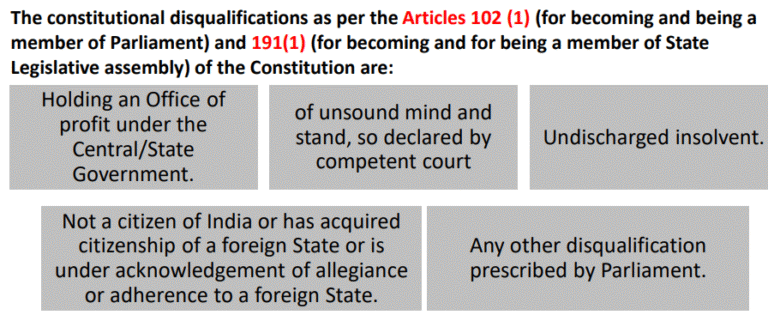
Important Supreme Court Judgments
- Kihoto Hollohan v. Zachillhu (1992) – Speaker’s decision is subject to judicial review by High Courts and the Supreme Court.
- Keisham Meghachandra Singh v. Speaker, Manipur (2020) – Set a three-month limit for deciding disqualification cases.
Issues and Challenges
- Delays: No strict timeline for Speaker’s decision, enabling prolonged cases.
- Bias: Speaker is usually a ruling party member, raising impartiality concerns.
- Legislative autonomy vs. judicial intervention: Courts reluctant to interfere early.
- Freedom of speech: Law limits legislators’ ability to dissent within the party.
- Rigid whip system: Discourages internal party debate.
Way Forward
- Shift disqualification power to independent bodies or Election Commission to ensure neutrality.
- Set mandatory timelines for deciding cases.
- Reform whip system to allow greater debate on non-confidence or non-money bills.
- Promote internal party democracy to balance discipline with freedom of expression.
Representation of the People Act, 1951
- Offences like promoting enmity, bribery, electoral fraud.
- Offences like hoarding, adulteration, dowry crimes.
- Conviction of two years or more = disqualification during sentence + 6 years after release.
- Section 8(4) (three-month appeal window) struck down in Lily Thomas v. Union of India (2013), making disqualification immediate upon conviction.
Conclusion:
While the Anti-Defection Law has curbed opportunistic political defections, loopholes and delays in its enforcement weaken its purpose. A reformed framework with independent adjudication, fixed timelines, and greater space for intra-party debate is essential to protect both political stability and democratic freedom in India’s legislative process.


